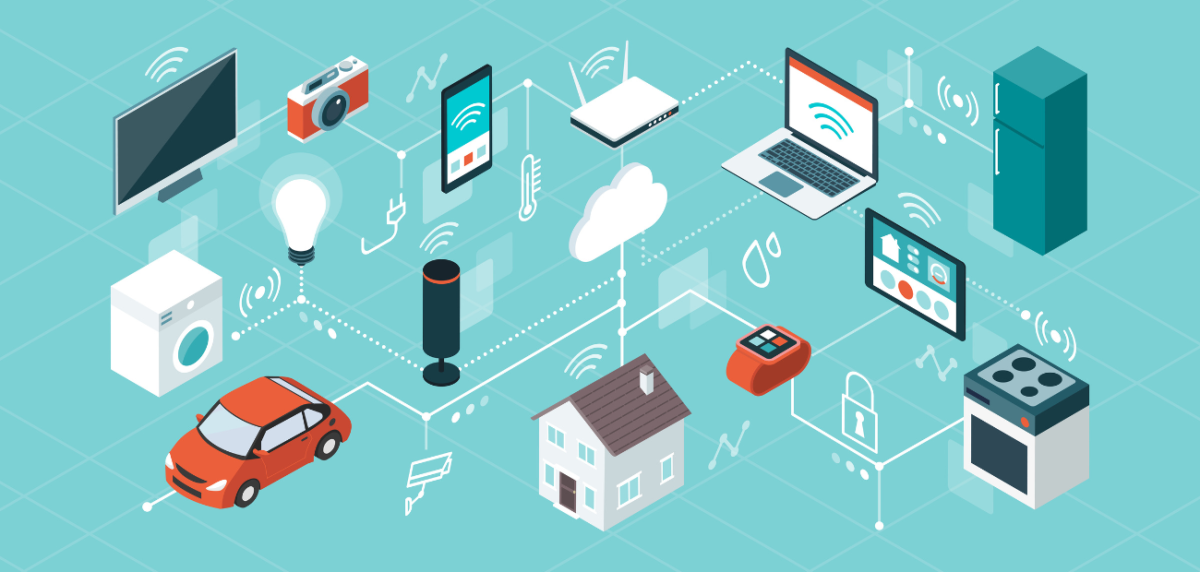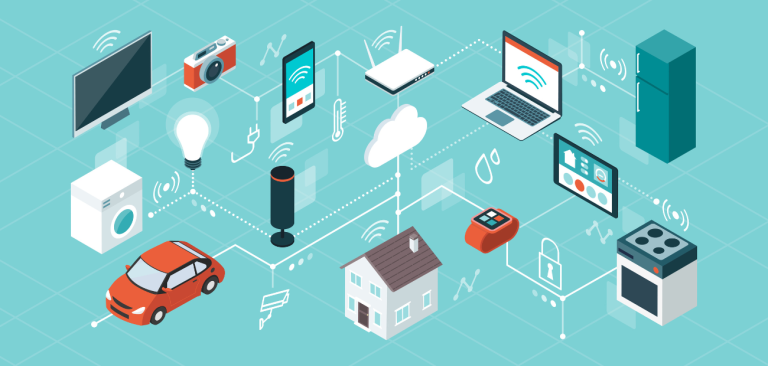
©elenabs / Getty Images Plus
It's a great time to be alive, especially if you're interested in smart home technology. As a real estate professional and technology enthusiast, I've watched the rise of smart homes move from an abstract concept to an everyday reality. But as technology evolves, so too does the question for homeowners and prospective buyers of when to upgrade their smart home devices.
Navigating the maze of tech upgrades doesn't have to be complicated or scary. It's about understanding your needs, recognizing technology trends, and making informed decisions.
When to upgrade?
First, not all devices need to be upgraded as soon as a new model hits the shelves. Devices like smart thermostats, smart lights, and even security systems often remain fully functional and useful for years. That said, knowing when to upgrade will ensure you don't get left behind with new trends and innovations. It's true that sometimes it's fun to upgrade.
One key indicator that it's time to update is when your device no longer supports software updates. Manufacturers often send out software updates and often warn consumers when a device is no longer supported. If this is the case, consider upgrading. Without these updates, your device may be more vulnerable to security risks and may be incompatible with other devices in your home.
Another sign that it's time to upgrade to a newer model is when your device starts to lose functionality or efficiency. If your smart lock won't lock from an app on your phone, or your security camera has poor video quality, an upgrade can improve the effectiveness of your device and, in turn, the overall ecosystem.
Performance is also important. For example, if your smart speaker takes too long to respond or doesn't recognize your commands, a newer model could be a big improvement.
What to upgrade
Each smart device has a different life span and need for replacement. Here are some key areas to focus on.
Smart hubs and controllers: Your smart home brain needs to stay sharp. If your smart hub is outdated or no longer compatible with new devices, it may be time for an upgrade. The latest models offer more seamless integration, better performance, and improved security features. Security Systems: Home security technology is advancing rapidly, and older systems can be vulnerable. New models of smart locks, doorbell cameras, and security systems feature better encryption, higher-resolution cameras, and more reliable alarm systems. Smart appliances: As technology evolves, so do the capabilities of smart appliances. For example, a smart refrigerator may only need to be replaced if it physically breaks down, but it's a good idea to pay attention to newer models. We choose smart features to improve and make our lives easier, and new models offer more advanced features such as increased energy efficiency, personalized food management systems, and AI-integrated cooking assistance. provided. Smart thermostats and lighting: These devices have a long lifespan, but upgrading them offers benefits such as energy savings and better integration with other smart devices. As with any appliance, it's a good idea to check out new models from time to time to see if new features make it worth upgrading.
Budget for upgrades
Not all upgrades need to cost a fortune. New models often sell at similar prices to previous models. To budget for upgrades, consider setting aside a certain amount of money each year for smart home improvements. Consider the age of your devices, the cost of new models, and the value they bring to your home and lifestyle.
Also, don't forget to properly recycle or dispose of your old device. Some manufacturers also offer trade-in programs that give you a discount on a new model when you return your old device.
Stay ahead of technological advances
Being aware of technology trends can help you make informed decisions about when and what to upgrade. Here are some tips:
Follow Tech News to stay up to date on the latest releases, updates, and recalls. Sites like CNET, TechCrunch, and Wired frequently feature smart home trends and product reviews. Join online communities: Platforms like YouTube, Reddit, and various smart home forums are great resources for insights and reviews. These are also the places to start discussions about the device and get advice from real users. Get Manufacturer Support: If you have questions about the longevity of your device or the benefits of upgrading, don't hesitate to contact your manufacturer's customer support. That is the role of the support department. Talk to a tech-savvy real estate professional: An industry expert who stays on top of smart home trends can provide valuable advice on technology upgrades and their impact on your home's value.
Navigating the world of smart home upgrades doesn't have to be a difficult task. With a little research and smart decision-making, you can keep your smart home up to date, functional, and safe. Remember, it's not just about having the latest gadgets, it's about improving your lifestyle and increasing the value of your home.

